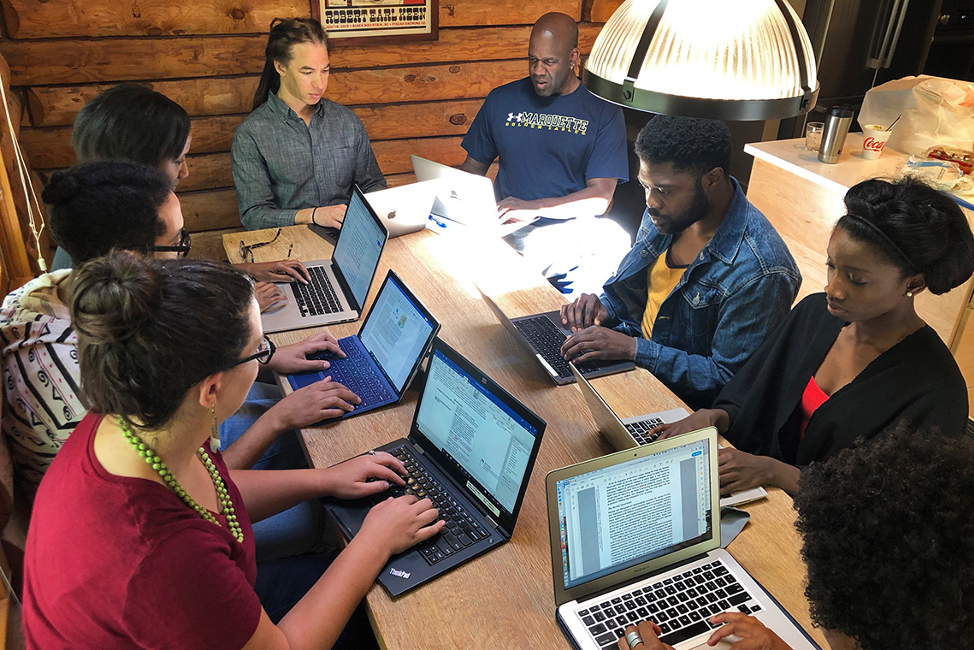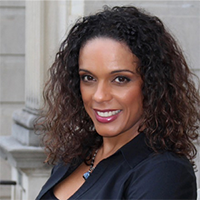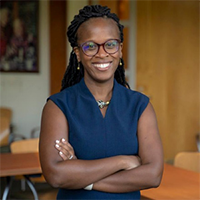
“Write!”
 For Sarah Gaither, this command reminds her what she needs to make time to do. As an assistant professor of psychology & neuroscience at Duke, she balances a robust teaching and research load with administrative duties, meetings with collaborators and students, leadership of the Duke Identity & Diversity Lab and more. Advancing her own scholarship can get squeezed to the margins, but she can’t allow that to happen during this critical period in her career.
For Sarah Gaither, this command reminds her what she needs to make time to do. As an assistant professor of psychology & neuroscience at Duke, she balances a robust teaching and research load with administrative duties, meetings with collaborators and students, leadership of the Duke Identity & Diversity Lab and more. Advancing her own scholarship can get squeezed to the margins, but she can’t allow that to happen during this critical period in her career.
From manuscripts, grants and book chapters to opinion pieces and responses to editors, junior faculty need to write to build their tenure files and advance in rank.
Protected writing time is key. And for Black scholars like Gaither, a supportive community can be a big help in navigating this stage of faculty life.

A Group for Writing, Mentoring and Friendship
Gaither joined the Writing and ReseArch Productivity (WRAP) Group for Underrepresented Faculty shortly after coming to Duke. Today she serves as co-leader along with Tyson Brown, associate professor of sociology, who founded the group in 2016. WRAP offers weekly writing sessions, weekend writing retreats and other programming. The aim is to build community among Black faculty, increase their publication rates and enhance their sense of inclusion on campus
 “With very few minority faculty in my department, WRAP has been essential in creating a support system for my faculty life transition,” Gaither says, “and the guided writing time has been critical during my first years on the tenure track.”
“With very few minority faculty in my department, WRAP has been essential in creating a support system for my faculty life transition,” Gaither says, “and the guided writing time has been critical during my first years on the tenure track.”
As universities pursue efforts to improve the racial climate on their campuses, Brown says that “faculty of color often do a disproportionate share of racial equity labor such as serving on diversity committees, helping to navigate racial incidents and recruiting and training students of color. While racial equity labor is essential, it can also be taxing and take away from time for research.”
Structured Writing with Accountability
 WRAP members participate in a weekly two-hour writing session. “In the first 10 to 15 minutes, we talk about our goals for that session,” Gaither says. “We go around the table and hear from each person. Then we do 90 minutes of writing. We close by taking 15 minutes and asking each person to assess the success of that session” as well as how things are going with research, teaching and life in general.
WRAP members participate in a weekly two-hour writing session. “In the first 10 to 15 minutes, we talk about our goals for that session,” Gaither says. “We go around the table and hear from each person. Then we do 90 minutes of writing. We close by taking 15 minutes and asking each person to assess the success of that session” as well as how things are going with research, teaching and life in general.
If faculty are not on campus, they can join the group virtually.
Each week an average of seven members show up and a total of 22 faculty and postdocs have participated. They represent 14 disciplines and units across campus.
 “It’s like a triple accountability system,” Gaither says. “You’ve got the time blocked, and people mark their calendars. And when we’re writing with similar people, we want to see how things are going; if someone doesn’t show, I’ll call them and ask where they were. There’s also a shared Google sheet. Everyone logs the hours and minutes they spend every week on writing.”
“It’s like a triple accountability system,” Gaither says. “You’ve got the time blocked, and people mark their calendars. And when we’re writing with similar people, we want to see how things are going; if someone doesn’t show, I’ll call them and ask where they were. There’s also a shared Google sheet. Everyone logs the hours and minutes they spend every week on writing.”
In addition to the weekly sessions, two weekend-long writing retreats are offered during the year to increase the group’s writing time. Each person aims to create a publication-ready article by engaging in structured writing sessions.
Bridging Gaps
 As the group evolves, Brown and Gaither are adding some new components. They see a need for making connections between faculty ranks and plan to encourage Black associate professors and visiting faculty to join. Senior faculty members and campus leaders will also bridge the gap by serving as guest speakers.
As the group evolves, Brown and Gaither are adding some new components. They see a need for making connections between faculty ranks and plan to encourage Black associate professors and visiting faculty to join. Senior faculty members and campus leaders will also bridge the gap by serving as guest speakers.
A one-day writing retreat in Durham will supplement the weekend retreats and accommodate faculty for whom overnight travel is a challenge.
WRAP members help each other by reviewing drafts and discussing strategies for navigating job situations. A listserv with 30 members supplements in-person conversations.
Increased Productivity, Confidence and Inclusion
 “Co-leading and participating in WRAP programmatic activities has greatly enhanced my productivity, and led to opportunities and connections with faculty in other units across the university,” Brown says. “I’ve found that meeting weekly to write alongside others has been useful for providing accountability and protected time for writing. Participating in the group has also fostered a sense of community and provided opportunities for us to discuss our scholarship, teaching and unique experiences.”
“Co-leading and participating in WRAP programmatic activities has greatly enhanced my productivity, and led to opportunities and connections with faculty in other units across the university,” Brown says. “I’ve found that meeting weekly to write alongside others has been useful for providing accountability and protected time for writing. Participating in the group has also fostered a sense of community and provided opportunities for us to discuss our scholarship, teaching and unique experiences.”
 Other members report improved daily writing habits, greater self-confidence both academically and personally, increases in research productivity and enhanced feelings of inclusion and community.
Other members report improved daily writing habits, greater self-confidence both academically and personally, increases in research productivity and enhanced feelings of inclusion and community.
At last count, Brown and Gaither identified a substantial output among members over the past two years: collectively they submitted 28 papers, 17 grant proposals and 14 conference abstracts, and they have two books in preparation.
Perhaps most importantly, they are doing this work together as a community. “The group has been so supportive,” says Gaither. “It has made my Duke experience better!”
